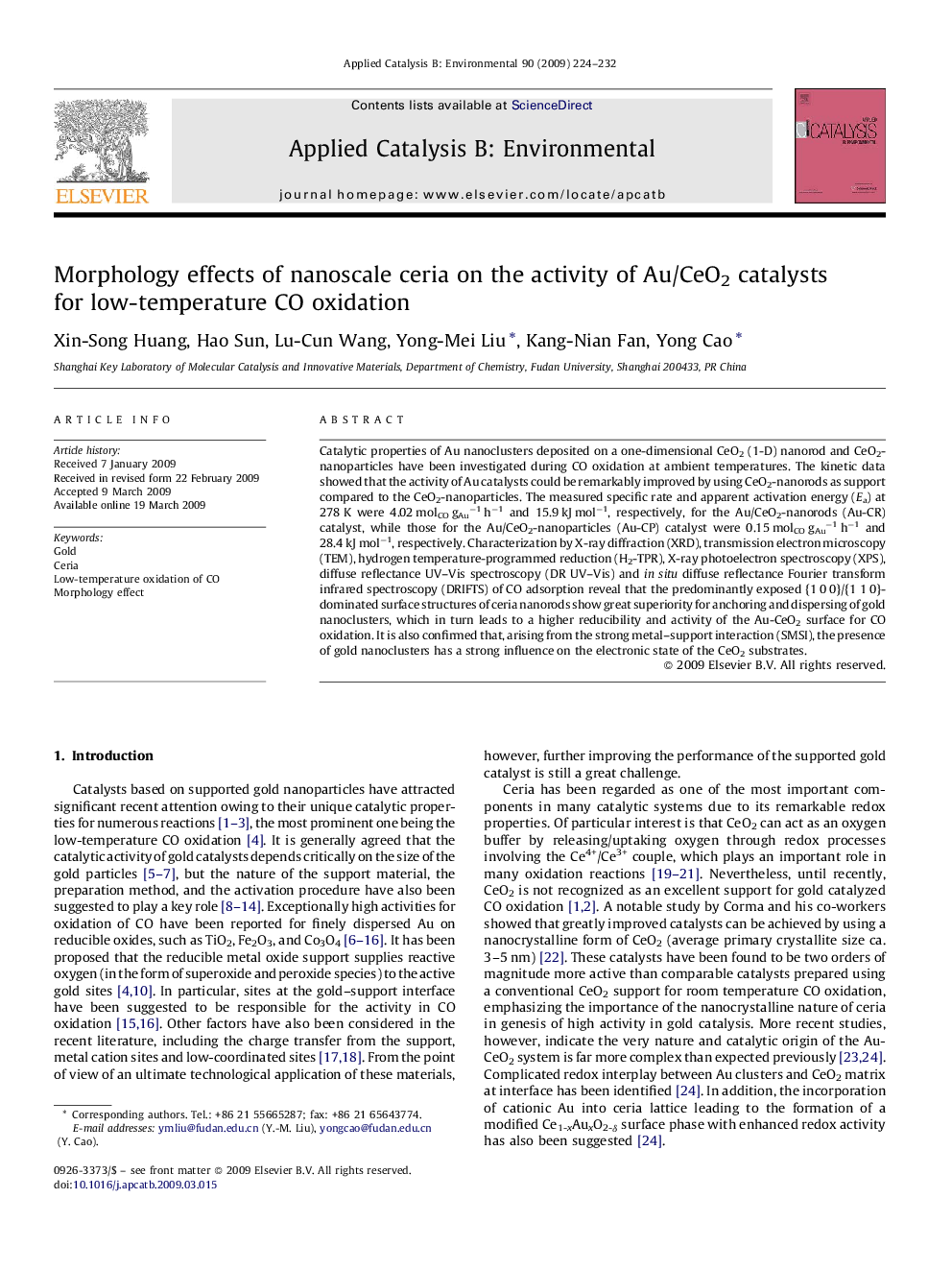| کد مقاله | کد نشریه | سال انتشار | مقاله انگلیسی | نسخه تمام متن |
|---|---|---|---|---|
| 47957 | 46486 | 2009 | 9 صفحه PDF | دانلود رایگان |

Catalytic properties of Au nanoclusters deposited on a one-dimensional CeO2 (1-D) nanorod and CeO2-nanoparticles have been investigated during CO oxidation at ambient temperatures. The kinetic data showed that the activity of Au catalysts could be remarkably improved by using CeO2-nanorods as support compared to the CeO2-nanoparticles. The measured specific rate and apparent activation energy (Ea) at 278 K were 4.02 molCO gAu−1 h−1 and 15.9 kJ mol−1, respectively, for the Au/CeO2-nanorods (Au-CR) catalyst, while those for the Au/CeO2-nanoparticles (Au-CP) catalyst were 0.15 molCO gAu−1 h−1 and 28.4 kJ mol−1, respectively. Characterization by X-ray diffraction (XRD), transmission electron microscopy (TEM), hydrogen temperature-programmed reduction (H2-TPR), X-ray photoelectron spectroscopy (XPS), diffuse reflectance UV–Vis spectroscopy (DR UV–Vis) and in situ diffuse reflectance Fourier transform infrared spectroscopy (DRIFTS) of CO adsorption reveal that the predominantly exposed {1 0 0}/{1 1 0}-dominated surface structures of ceria nanorods show great superiority for anchoring and dispersing of gold nanoclusters, which in turn leads to a higher reducibility and activity of the Au-CeO2 surface for CO oxidation. It is also confirmed that, arising from the strong metal–support interaction (SMSI), the presence of gold nanoclusters has a strong influence on the electronic state of the CeO2 substrates.
Journal: Applied Catalysis B: Environmental - Volume 90, Issues 1–2, 25 July 2009, Pages 224–232